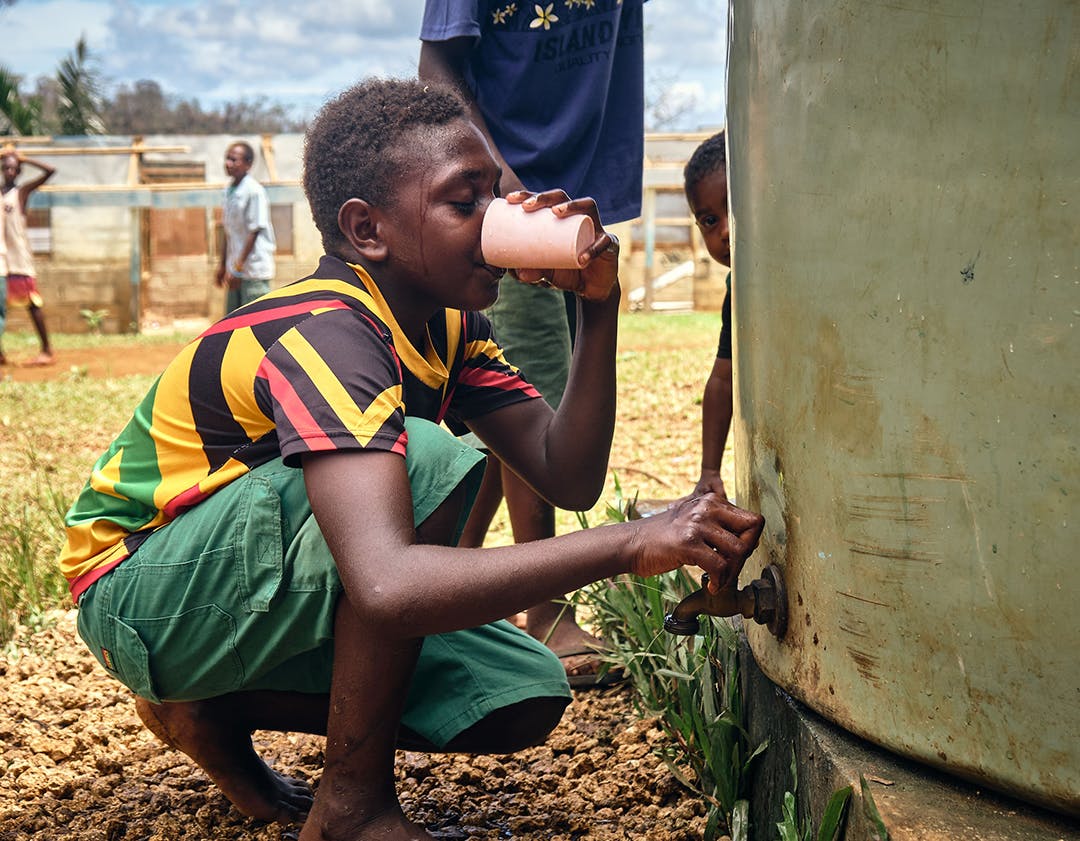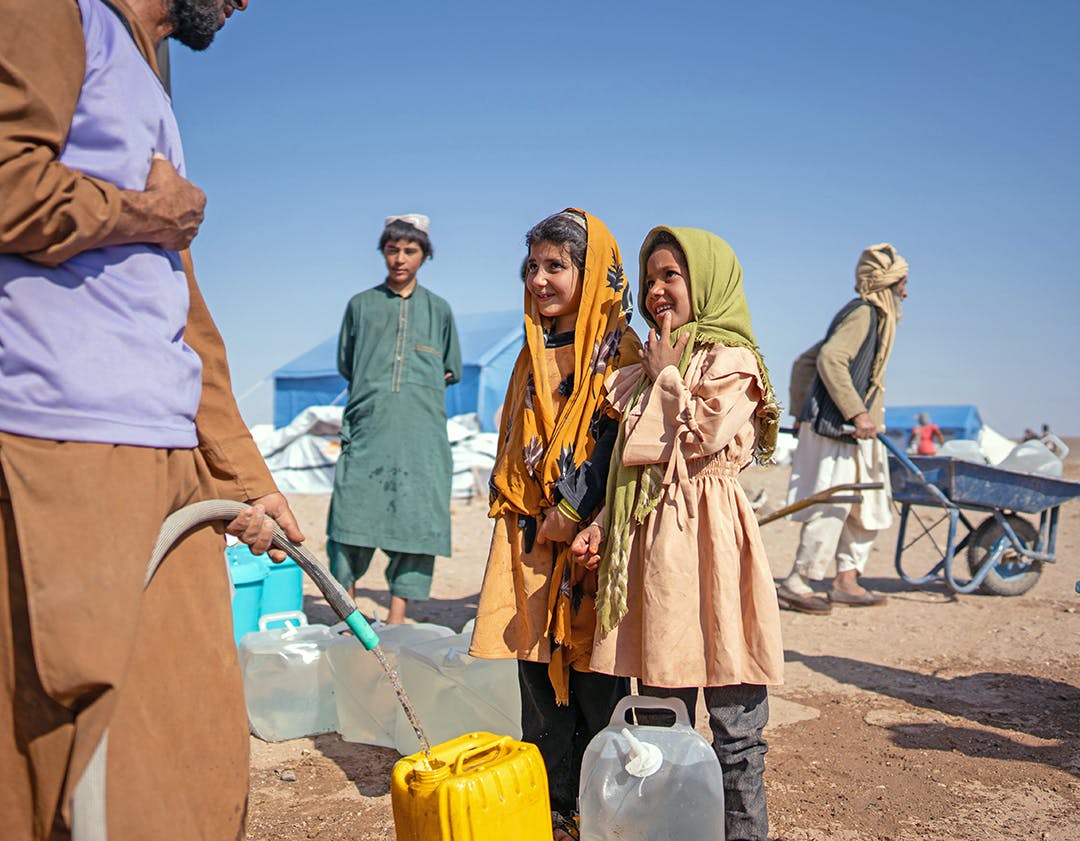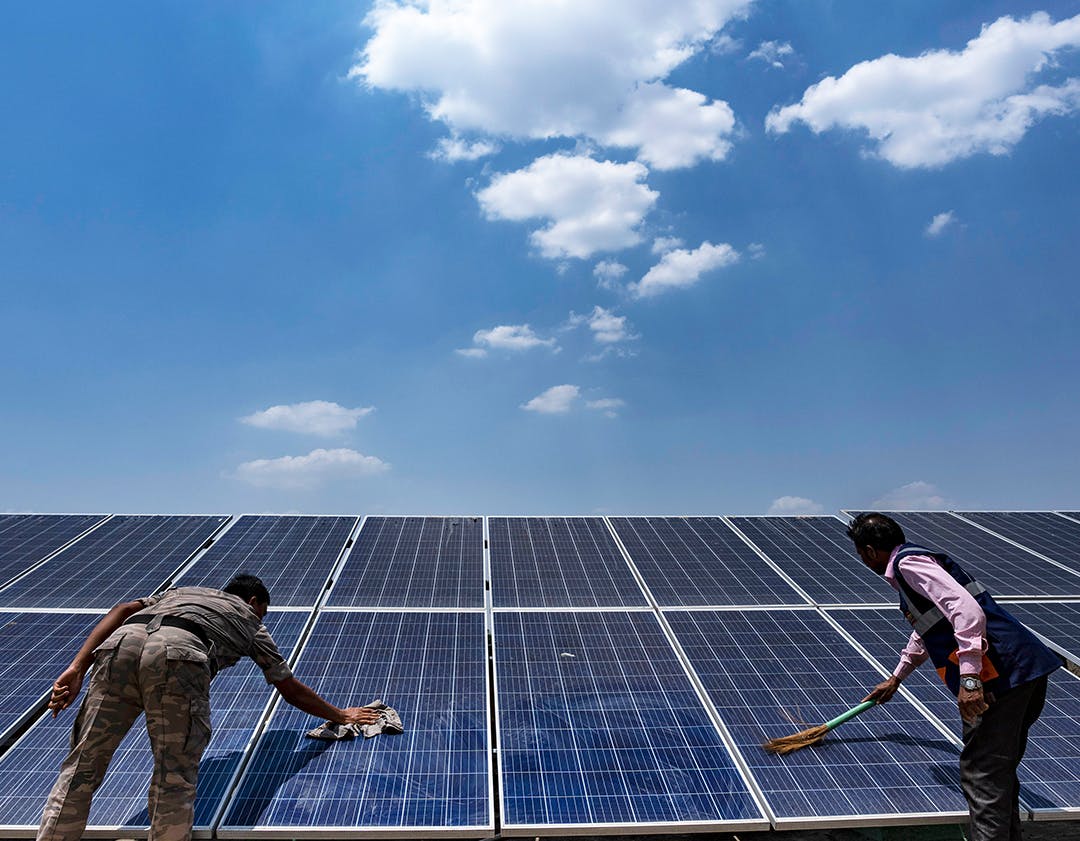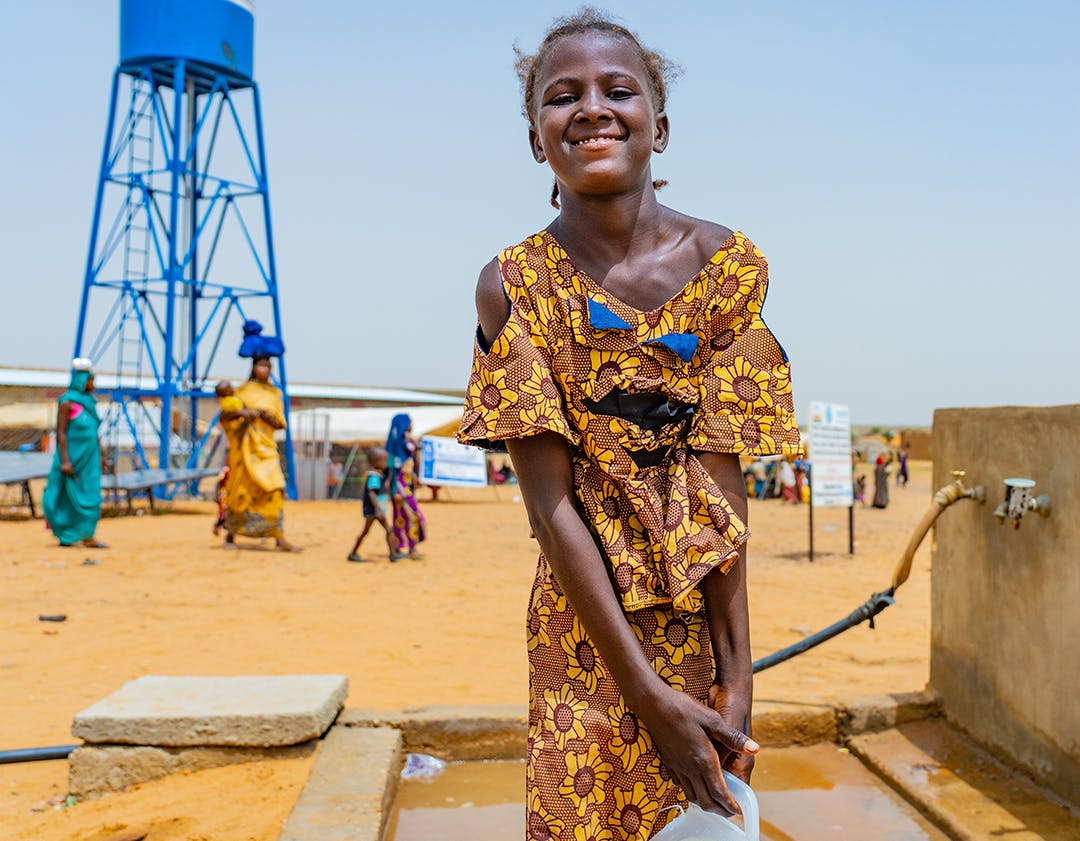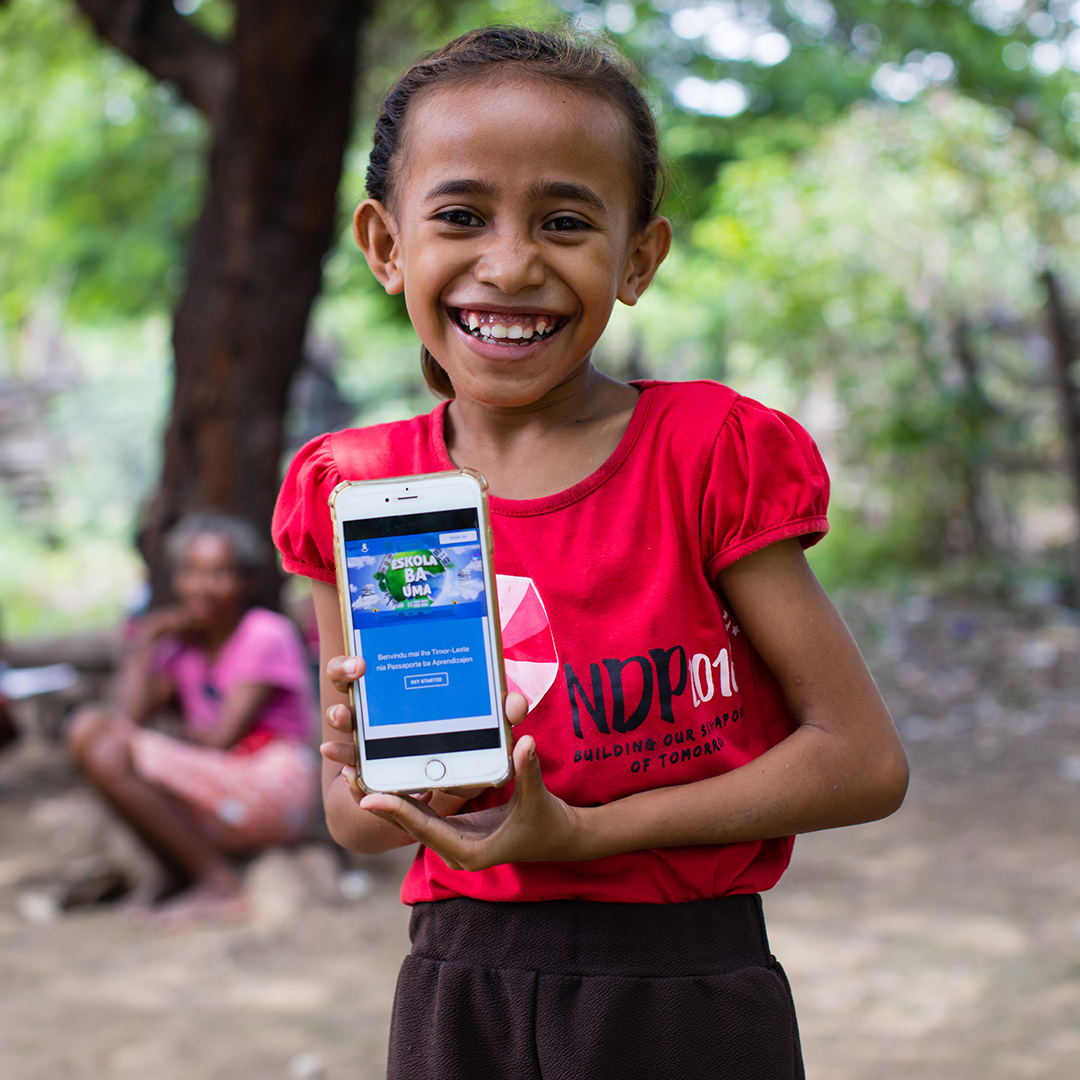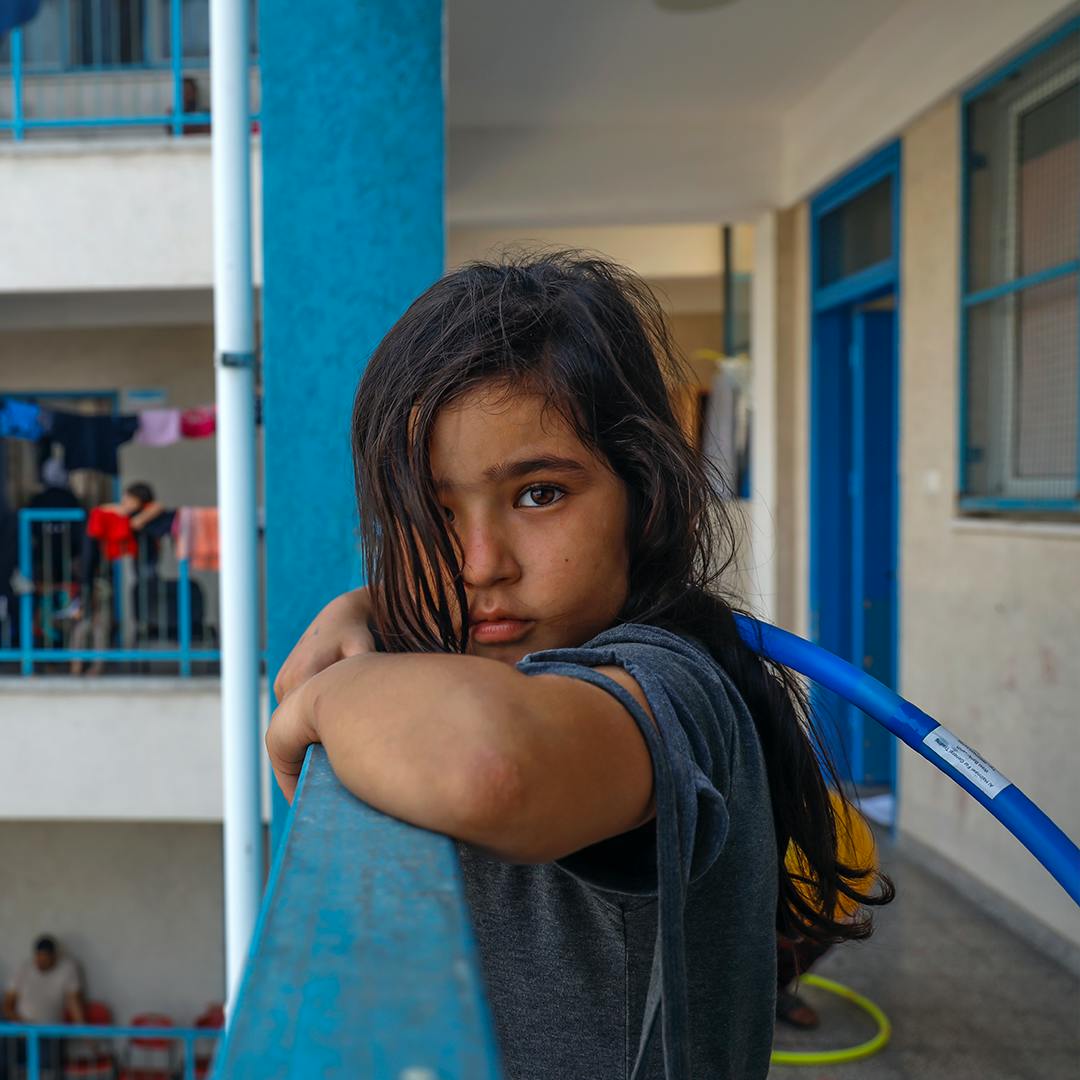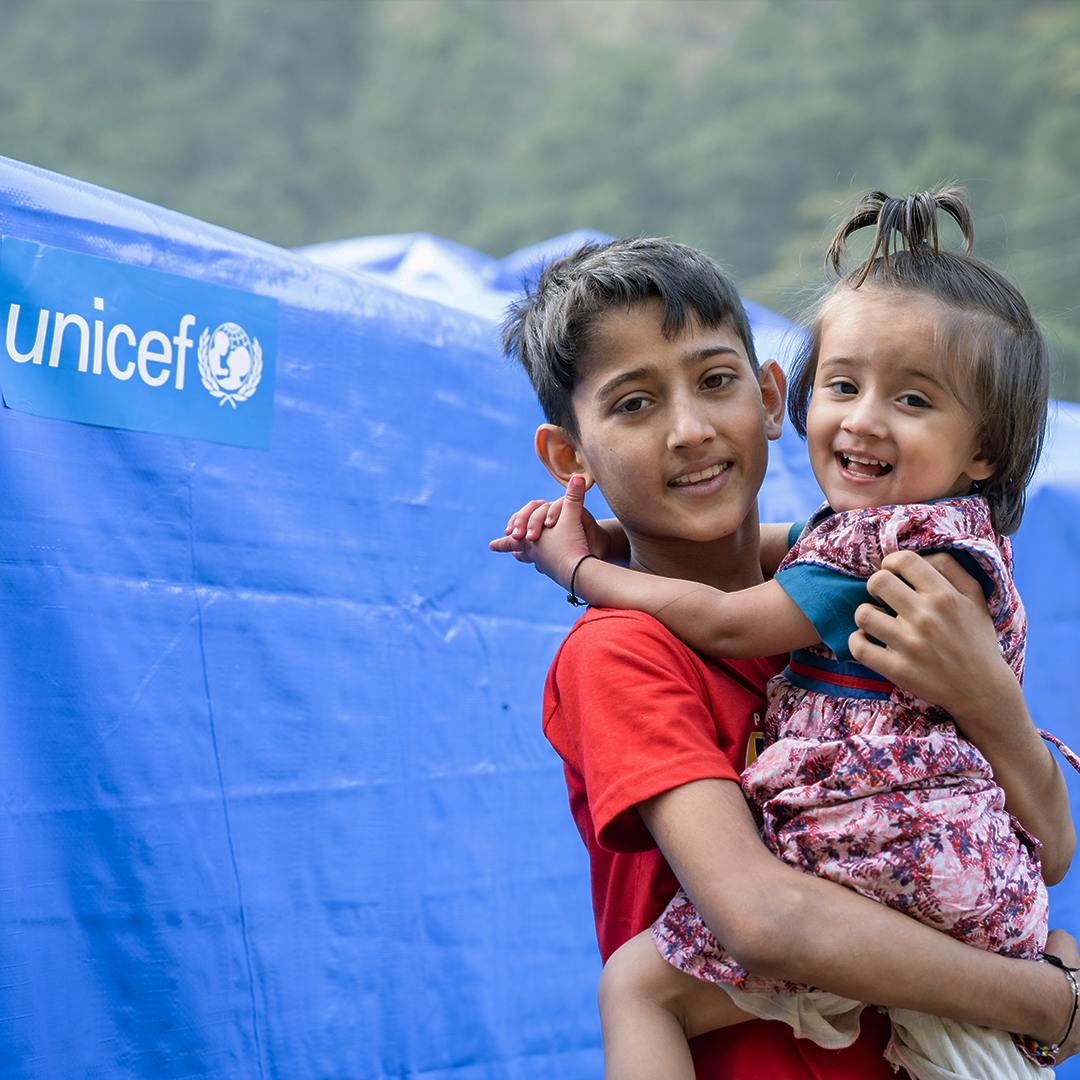
Your Impact in 2023
Home
Stories
Your Impact in 2023
Every moment counts.
For 77 years, UNICEF has been working to protect the rights of children in over 192 countries and territories around the world. And this year was no different.
With 2023 drawing to a close, the world has seen conflict, climate events, and natural disasters hit communities. In Aotearoa alone, Cyclone Gabriel and other severe weather events caused widespread damage across the motu, and our hearts go out to everyone who was affected.
Thanks to the amazing generosity from donors, we’ve been able to deliver what’s needed for kids around the world and their communities. Whether that was responding with emergency supplies following earthquakes in Türkiye & Syria, pre-positioning supplies before cyclones hit Vanuatu, or installing innovative solar-powered water systems in Afghanistan so communities can access clean water year round.
It's thanks to our supporters, that UNICEF can ensure we’re always there for kids. Before, during, and after emergency strikes. So let’s take a look back at what you’ve helped us deliver this year.
18
million
doses of a new malaria vaccine starting to rollout in 12 countries
2.5
million
people benefitting from 150 solar-powered water systems
1.5
million
students accessed education through the Learning Passport in first half of 2023
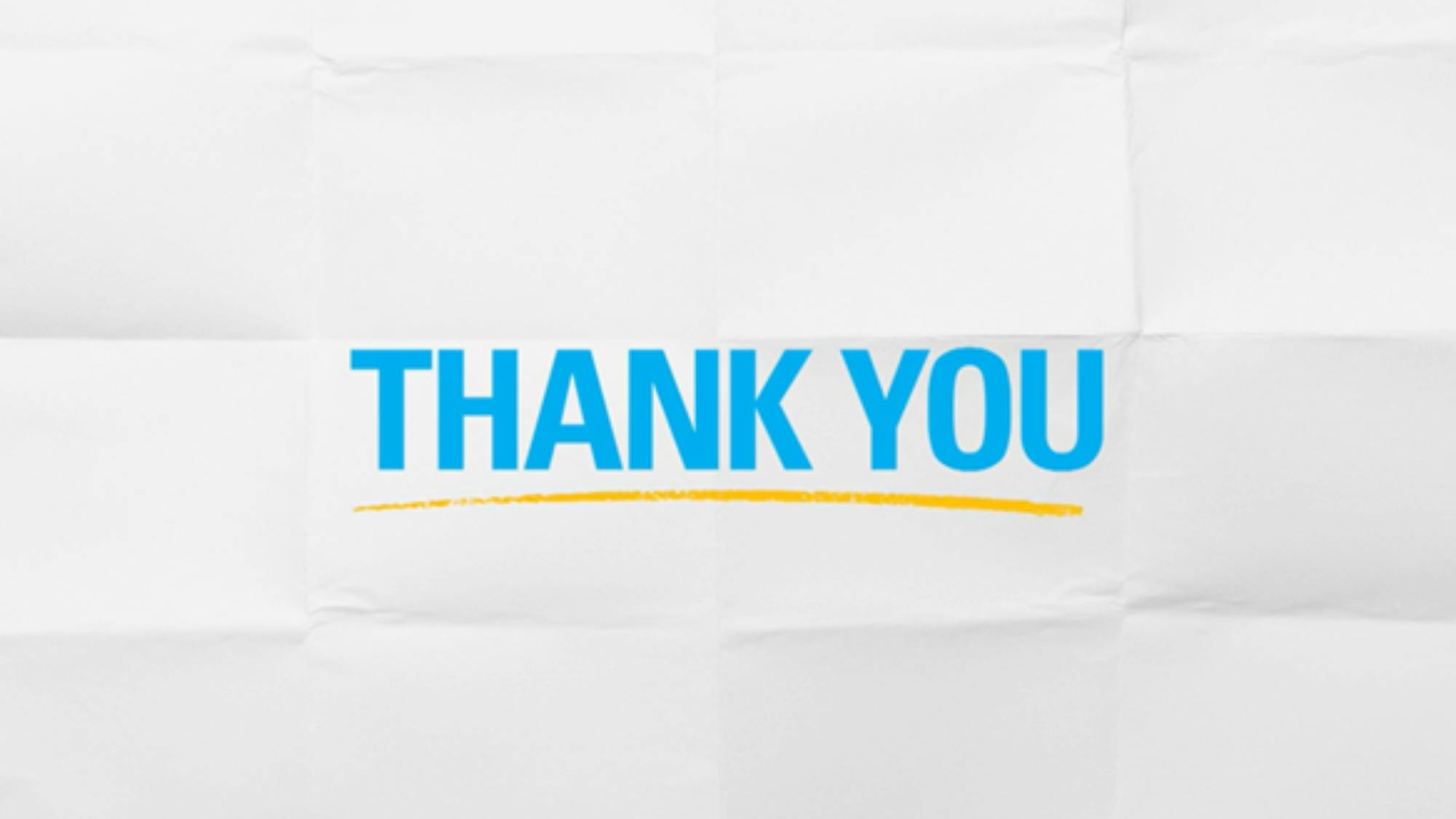

UN0271531
Through donations received from everyday Kiwis across the country, UNICEF has been able to prepare for emergencies when we could see or anticipate them coming.
With our vast network of supply hubs, pre-positioned supplies, and comprehensive emergency response plans, we’ve been able to act immediately and effectively the moment disaster strikes.
Responding to emergencies isn't a quick fix.
We’re there to tackle the root cause of the problems affecting kids,
and build lasting and innovative solutions to protect them down the line.

The Today Tomorrow Fund
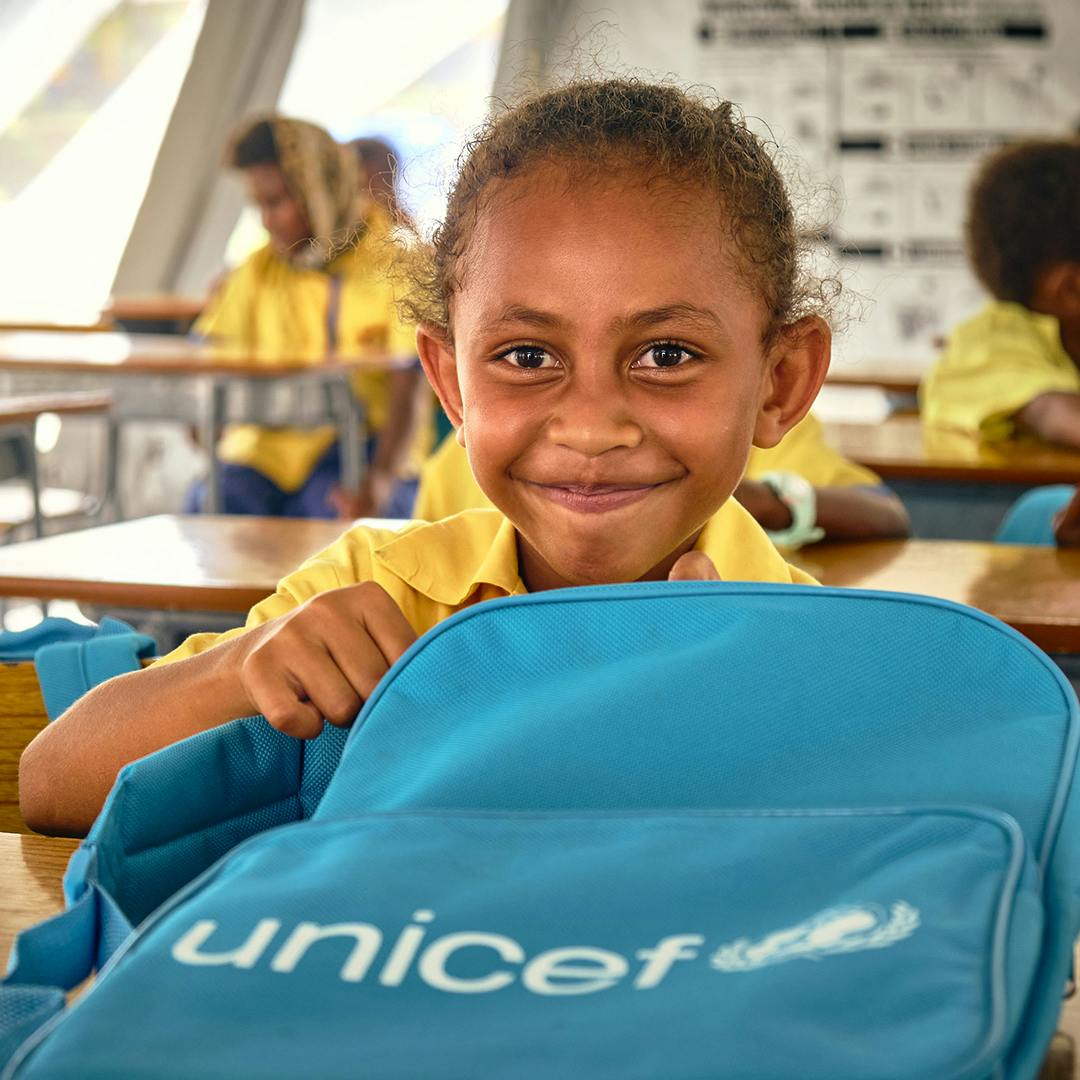
UN0820669
UNICEF has launched the world's first climate-change financing solution that’ll protect more than 13.5 million children and families. This revolutionary new fund is all about strengthening all our systems today to reduce the impact of a weather event, while insuring for what may happen tomorrow.
The Today Tomorrow Fund is not just adapting our programmes to climate change - it’s also changing how they’re funded. For the first time, we can now insure kids against the impact of a severe weather event.
This means we can provide faster availability of funds, speed up our disaster response and be there when kids need us most. Like seven year old Keziah, who is happy to be back at school and to be able to open her new UNICEF backpack at the École Publique Centre Ville after Cyclone Judy and Kevin hit Vanuatu.
This initial 3 year trial is spread across 8 countries where children are most impacted and vulnerable in the world. Three of these countries happen to be in the Pacific - Fiji, Vanuatu and the Solomon Islands – so we’ll be able to see the positive impact it’ll have on kids, right here in our neighbourhood.
A Ground-breaking
Malaria Vaccine
Did you know that with every minute that passes,
a child under 5 years old dies of malaria?
After 35 years of research, development, and testing, the world's first ever malaria vaccine is now ready to be rolled out - and UNICEF will be playing a critical part in this.
Over the next 2 years, 18 million doses of this ground-breaking vaccine will be delivered to 12 high-risk countries in Africa.
This will be a true game-changer in fighting against one of the leading causes of death, and save tens of thousands of children's lives each year.
The new malaria vaccines will be folded into routine immunisations for kids in countries where it's being rolled out. Thanks to your support, UNICEF will be taking a big leap forward in protecting children against preventable diseases.
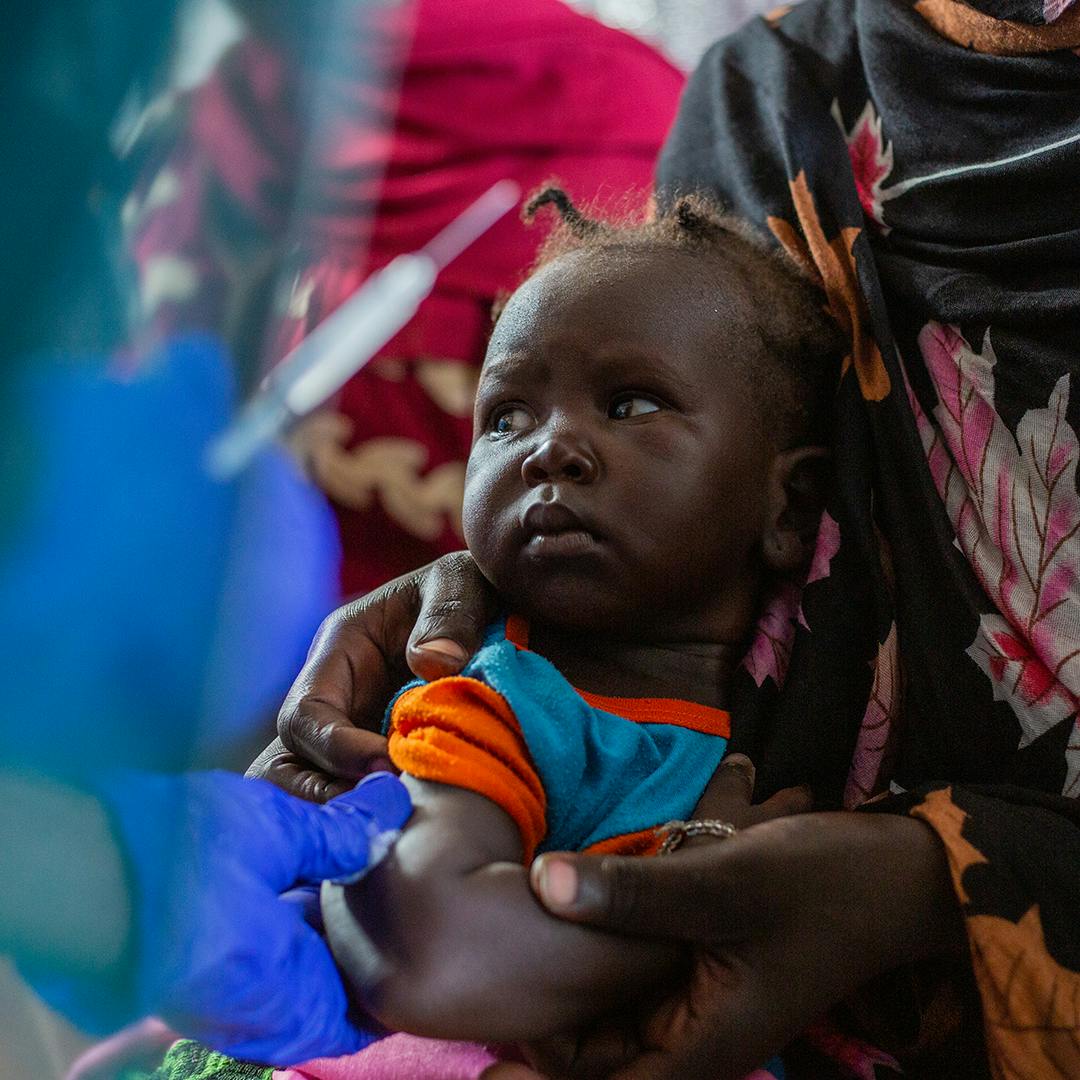
UNI430052
INNOVATIVE WAYS TO
PREPARE FOR THE FUTURE

OUR 2023 UNICEF
YOUNG AMBASSADORS
Preparation for what’s to come also means building up our tamariki and rangatahi to become future leaders.
Seven passionate, young Kiwis were hand-picked this year to help amplify youth voices on the issues that matter.
From the climate crisis to the housing crisis, mental health to discrimination as well as the recent general election, these young people spoke up for rangatahi in Aotearoa.
And right now, there’s no better global platform for their voices to be heard on the climate discussion, than the United Nations Climate Conference (COP28) in Dubai.
More to come on this space in the new year!
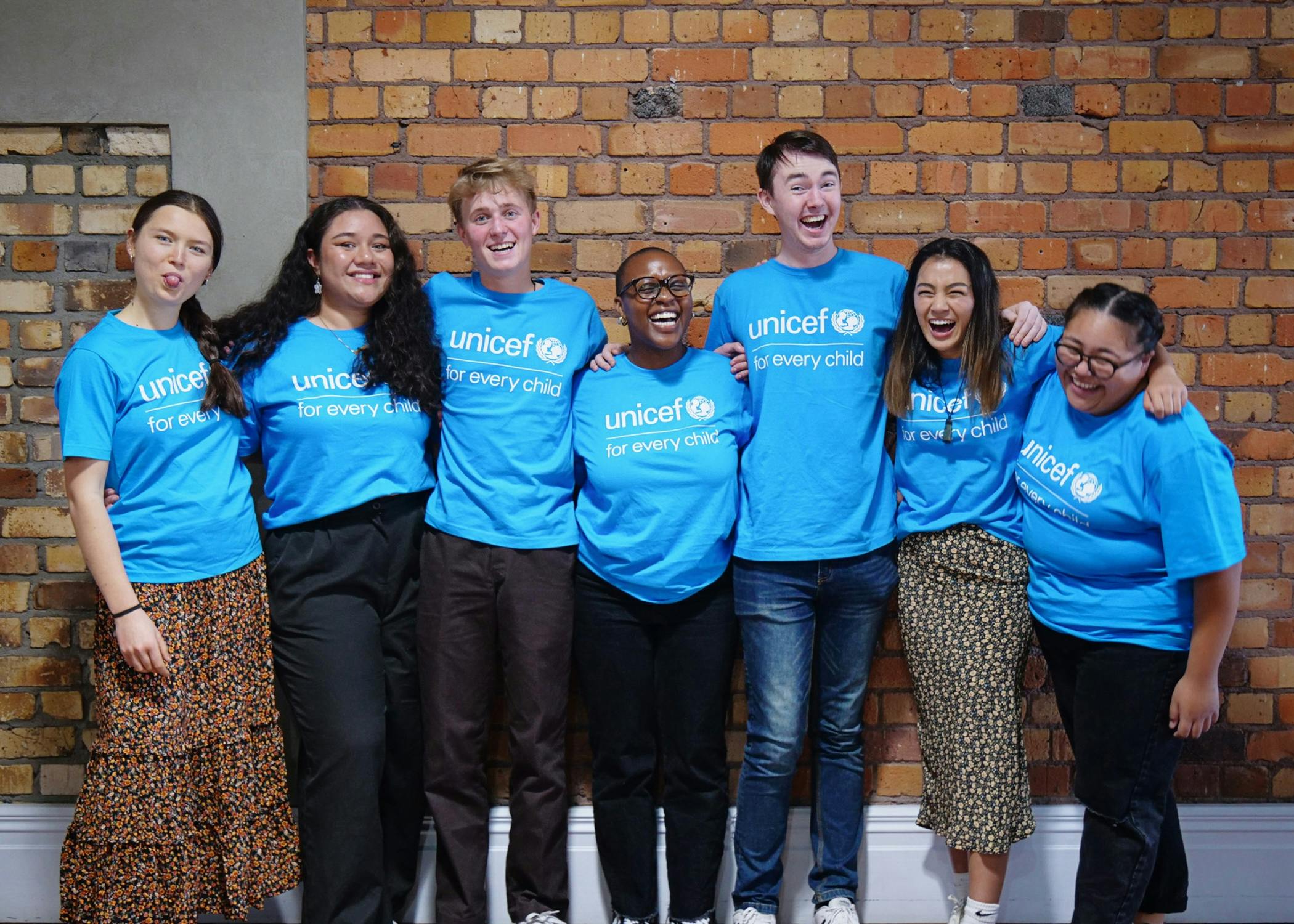


UNI472047
UNICEF responds to over 300 emergencies each year,
including many which don’t hit the headlines.
From getting trucks loaded with emergency supplies into Gaza,
to wading across floodwaters in Democratic Republic of Congo –
We’re on hand to respond with humanitarian aid wherever there’s a need.

The Children of Gaza Crisis
Right now, we're in Gaza providing life-saving humanitarian support to those most in need.
No place is safe for a child while intense fighting and hostilities continue. The situation on the ground is catastrophic. More than a million children are in danger. Many children have been killed or injured already, and countless others have been exposed to the ongoing violence.
Despite the challenges, we're working to move life-saving supplies across the border and into Gaza whenever logistically possible.
When a 4 day humanitarian pause was announced in November, we doubled the amount of supplies we were procuring from $10 million to $20 million worth of life-saving supplies.
But with the situation extremely perilous and the needs great, we’re continuing to call on generous Kiwis to help us continue our work on the ground for the children caught in the middle of the Gaza crisis.
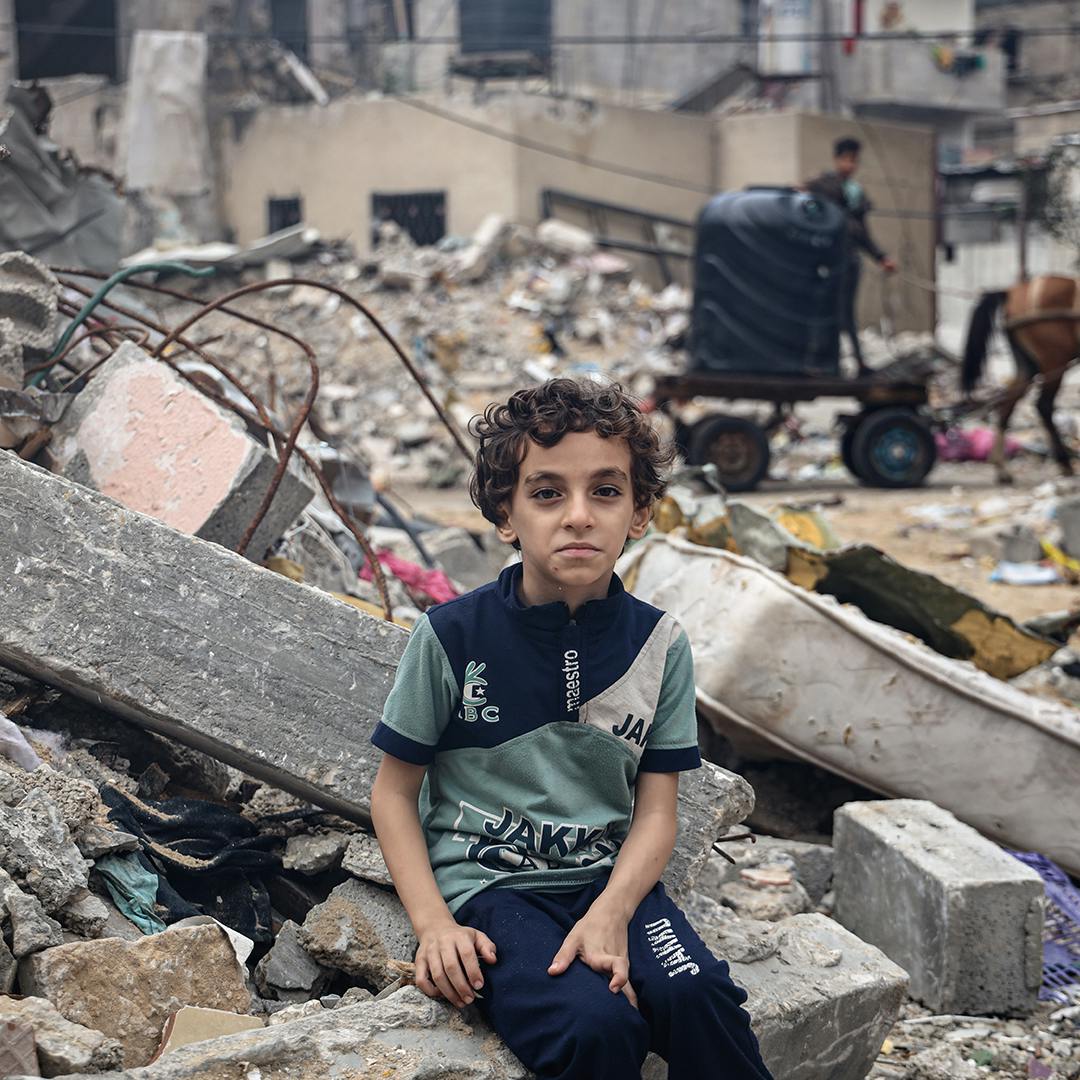
UNI463724
Back to back cyclones
hitting Vanuatu
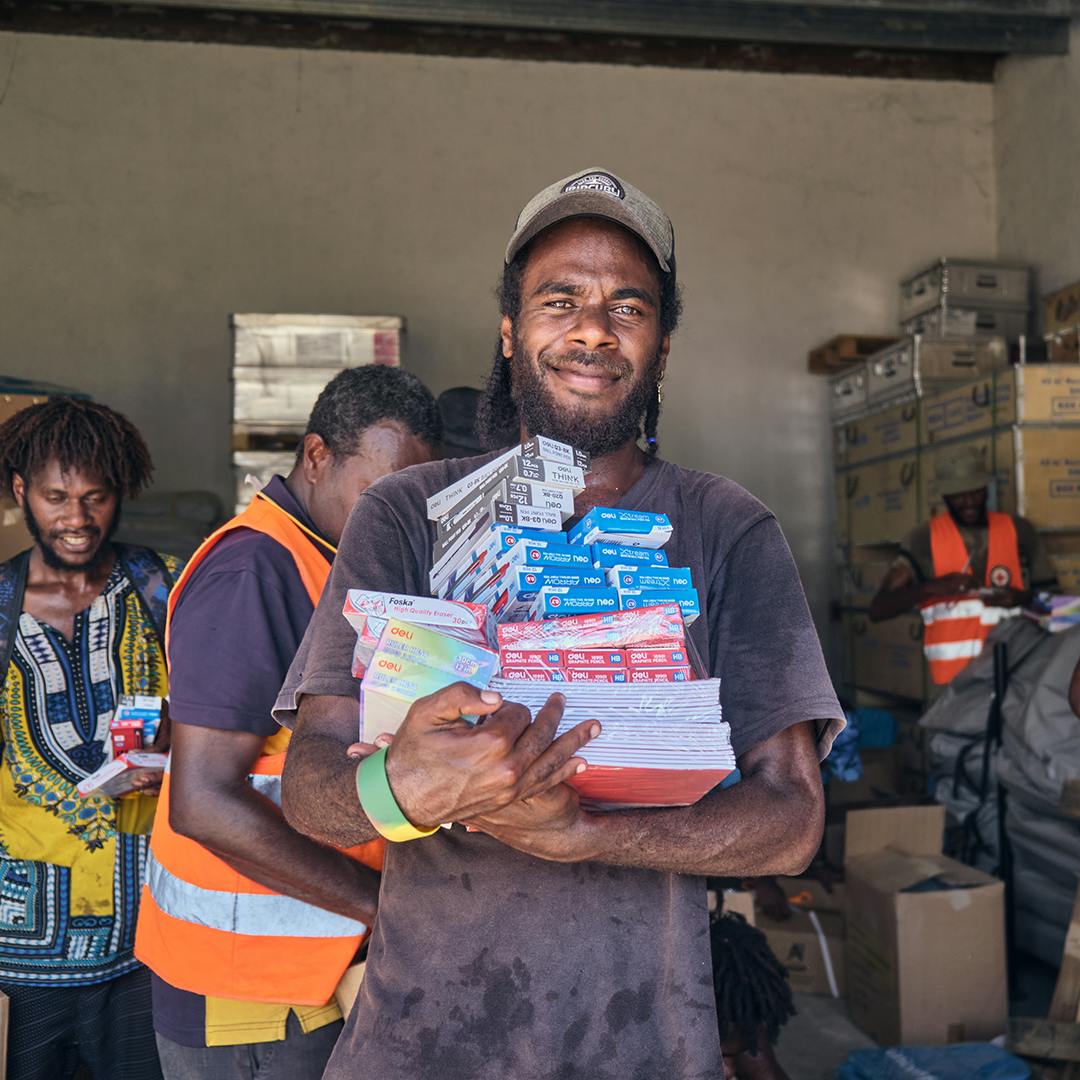
UN0804603
This year alone, Vanuatu has experienced three Category 4 cyclones,
as well as Cyclone Lola – the earliest Category 5 recorded in the Southern Hemisphere.
It's projected that Vanuatu is going to see another 4-6 cyclones make landfall this upcoming cyclone season. And so it's important we're prepared to respond with an integrated approach.
That's why we have a comprehensive strategy when it comes to responding
in Vanuatu to future disasters and the recovery afterwards.
Here's what donors helped us to deliver following the cyclones in Vanuatu
Medicines and nutrition supplies
Safe water and sanitation
Temporary learning spaces
Psychosocial support

With severe storms happening more and more often, we need to be prepared to respond with an integrated approach.
And it's not just Vanuatu included in our disaster response plans. This plans extends to many other Pacific countries that might fall in the destructive wake of future cyclones.

UN0820667
Scaling up our efforts
in Afghanistan
Because we've been on the ground in Afghanistan for over 70 years, we were able to quickly help communities recover from disasters such as earthquakes and droughts and continue our work to build back a future filled with hope!
Surrounded by torn and drought-stricken lands, blue towers stand tall as beacons of hope in Southern Afghanistan - this one for more than 20 years.
For this community - most of them children - these solar-powered water towers mean drinking, washing and cooking without the worry of availability, contamination, and spread of disease.
Thanks to the support of donors, UNICEF has provided nearly 200,000 people with safe, clean and sustainable drinking water in this region alone through solar-powered water systems. With 27 more water towers under construction, that number will soon grow by 50,000!
As prolonged drought continues to impact access to safe water we need to scale up our efforts - we won’t stop until everyone has water!
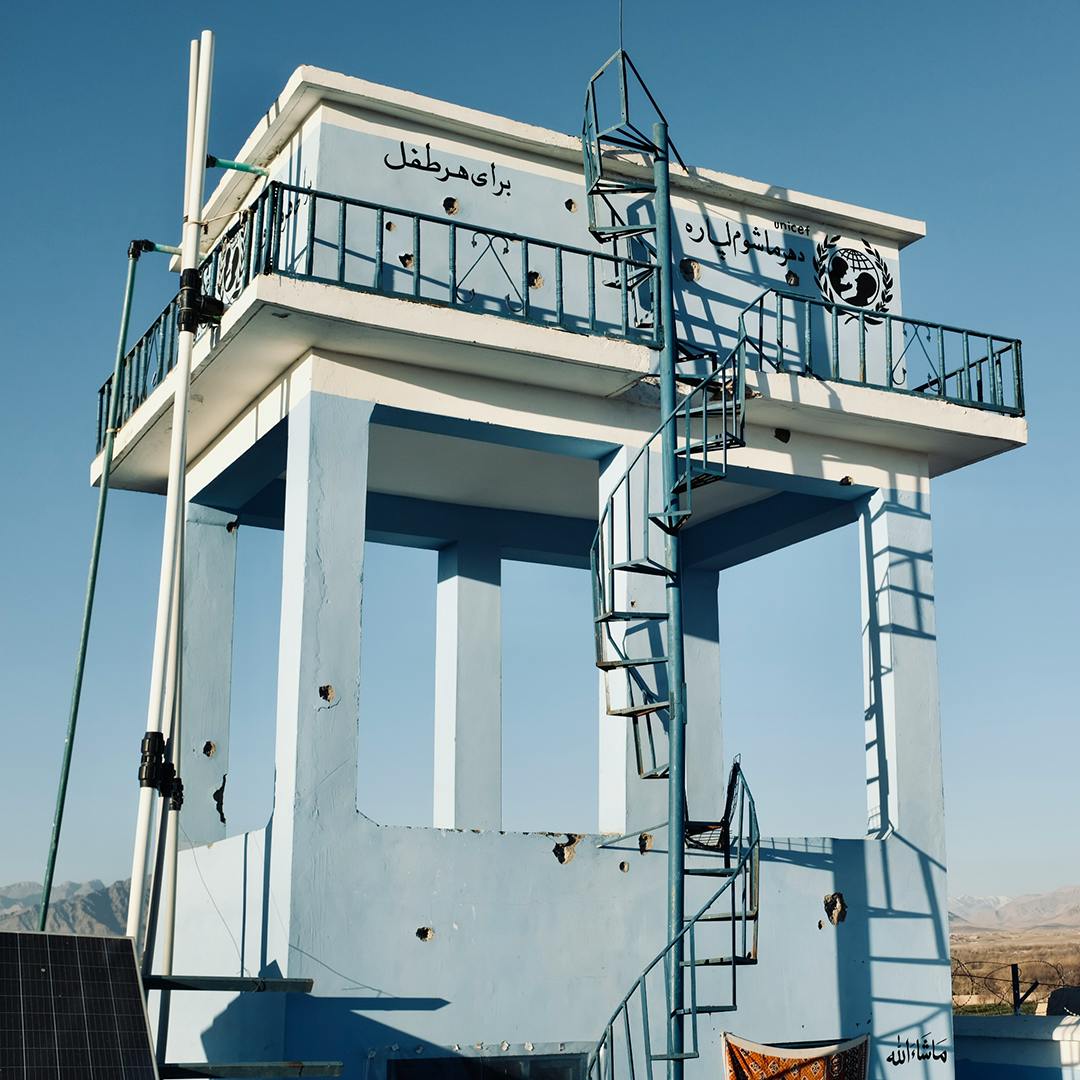
UN0629393
Staying on the ground
in Ukraine
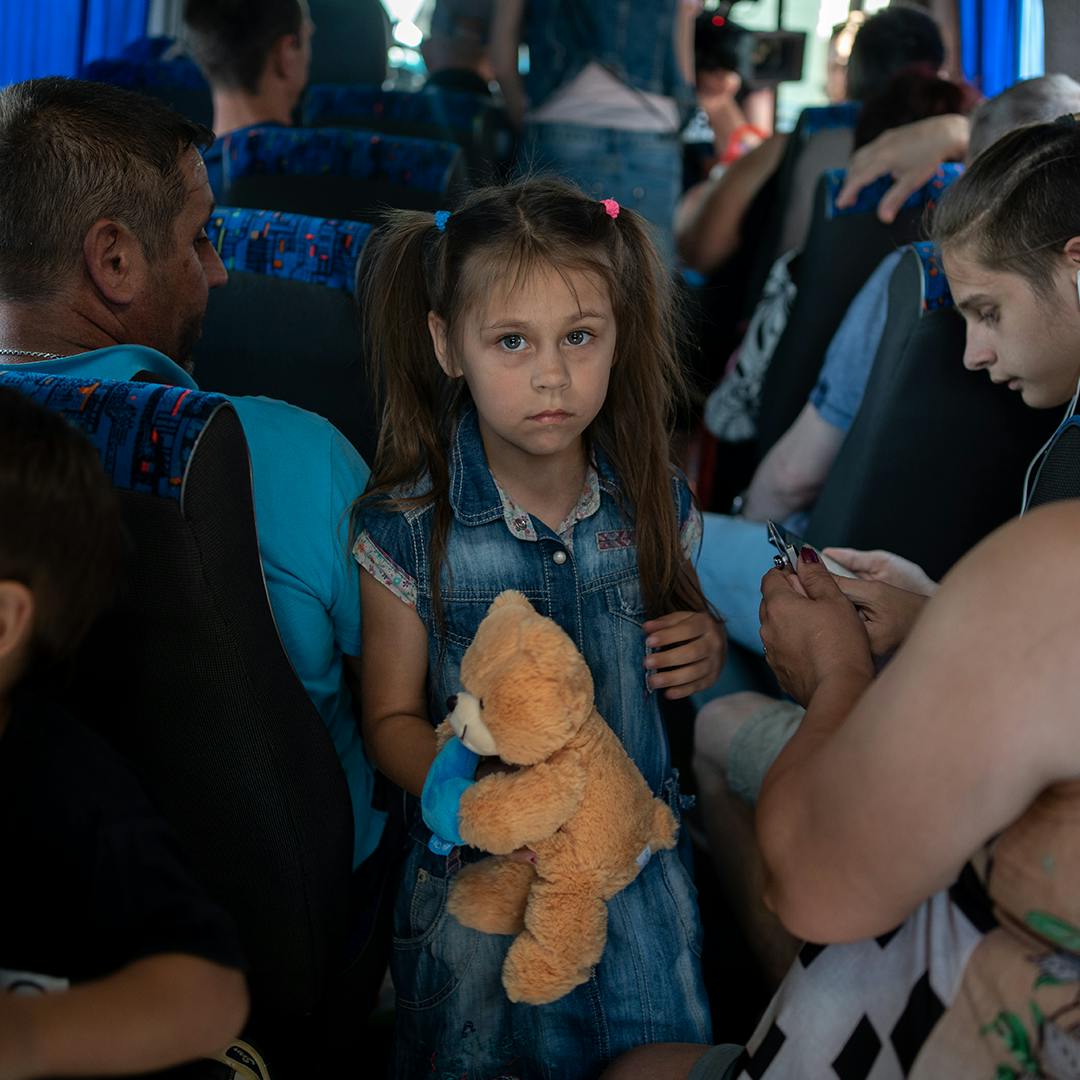
UN0853473
Last year in February the world watched in horror as the conflict between Russia and Ukraine kicked off.
But even after almost 2 years of brutal war, humanitarian aid continues to be delivered to children and families - not just within Ukraine, but also to support refugees who've fled to neighbouring countries.
We can’t stop the conflict, but thanks to donors we’ve been able to stay on the ground and keep providing support for kids and their families - even in truly extreme situations.
After an explosion on 6 June destroyed the Kakhovka Dam in Kherson, many homes and towns flooded, with thousands of people displaced.
Over 1,300 people fled Kherson on the very first day after the attack, with another 16,000 needing urgent help in the disaster zone.
After fleeing their flooded neighbourhood, Kateryna and her children had no clothing, no money and no home.
Thankfully, they and dozens of other affected families received a humanitarian kit at one of the UNICEF Spilno sites in Kherson, containing soap, blankets, and other basic essentials to help the family as they get resettled.
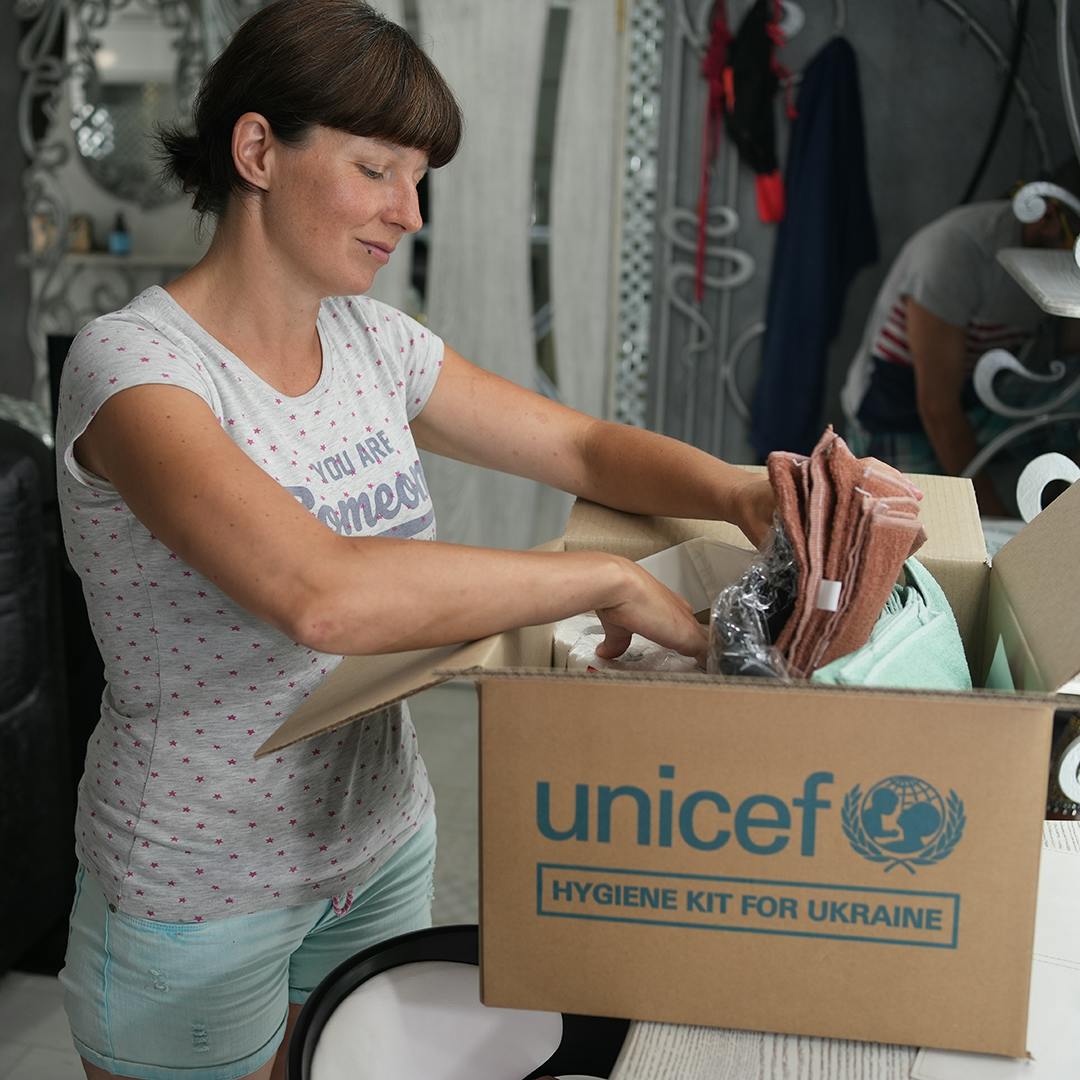
UN0856497
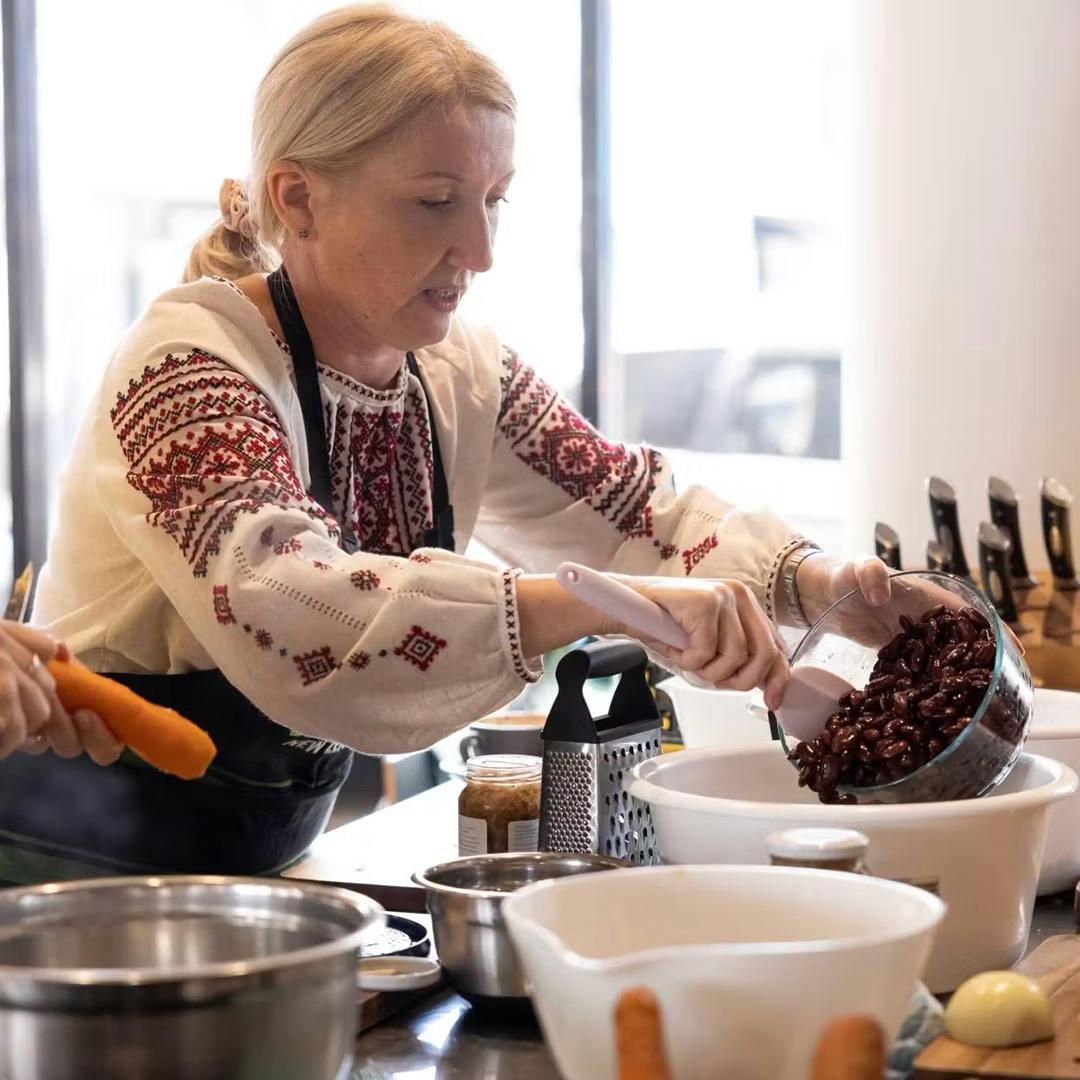
#CookForUkraineNZ
UNICEF Aotearoa launched #CookForUkraineNZ in April 2023 with support from renowned Kiwi chef Peter Gordon and the Ukrainian Association of New Zealand.
The launch of #CookForUkraineNZ was part of a global movement aimed at increasing awareness of the impacts of war on children living in Ukraine and highlights the urgency for international support.
The campaign invited Kiwis to come together over a dinner party, shared lunch, or bake sale to donate to the needs of children enduring the horrors of war.
Donations raised provided children in Ukraine with lifesaving assistance such as quality medical care and supplies, mental health support, warm clothes, clean water, school supplies, and provide safe spaces for children to continue their education.
$7,981 has been raised so far by everyday Kiwis hosting their own #CookForUkraineNZ events.
We’re committed to staying in Ukraine and helping to rebuild – even when the war comes to an end. And our commitment doesn’t stop at the borders.
We’re there for Ukrainian kids who need just as much support after having fled their homes.
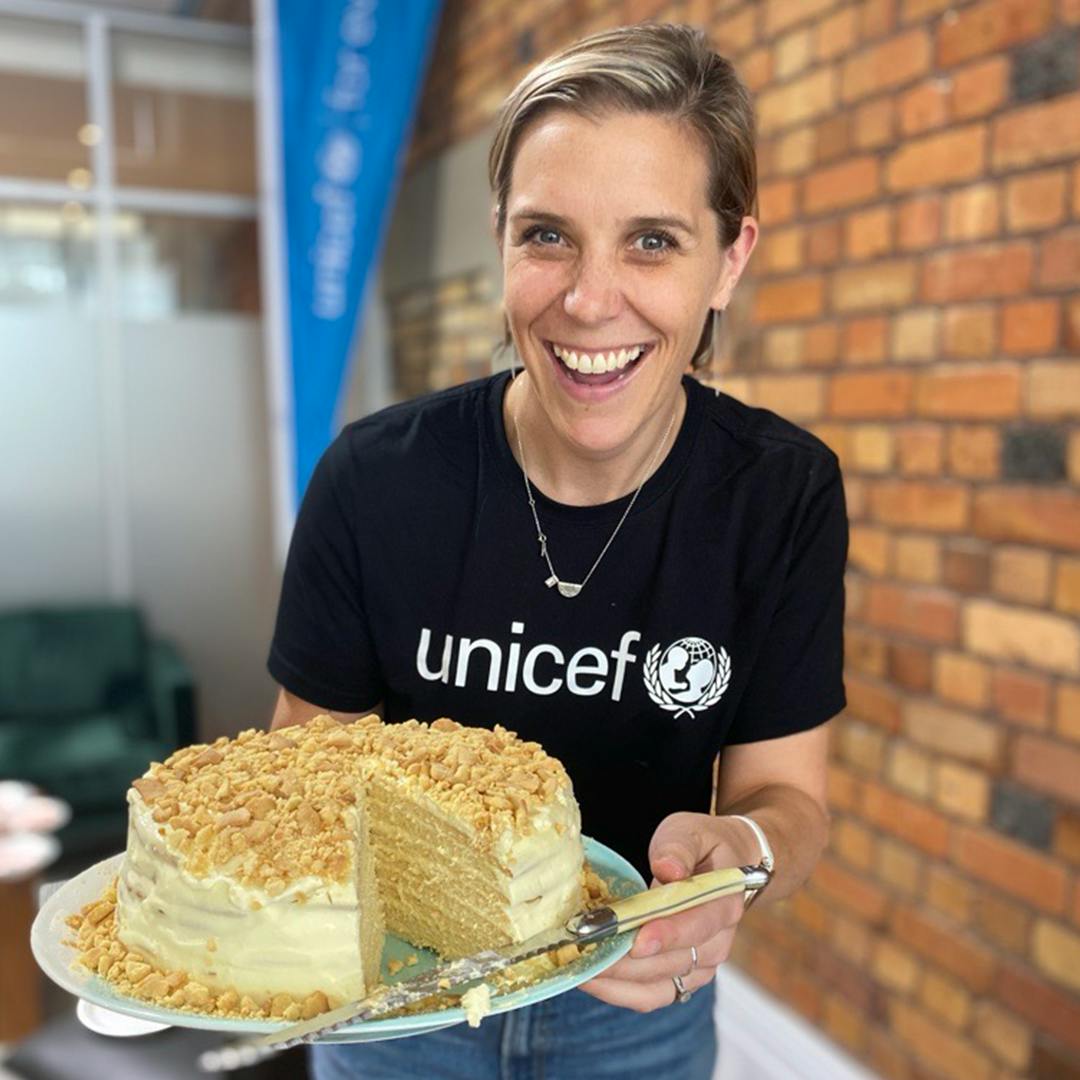

UNI441925
When you donate to help UNICEF, you’re not just helping us respond immediately to an emergency. Your support also lasts long after the headlines fade.
At just ten years old, Sasha knew leaving her home in Ukraine was the safest thing to do. It took courage to start a new school and life in Moldova.
Since the beginning of the year, almost 1.2 million children have accessed formal and non-formal education, over 960,000 of whom are in refugee-hosting countries. Sasha being one of them.
Close to 18,000 refugee households with children have also been reached with UNICEF-funded humanitarian cash to help them get back on their feet.
As the war in Ukraine rages on, UNICEF continues to work with 19 host countries across Europe to ensure children have access to essential services and are supported to integrate into a new country and culture.
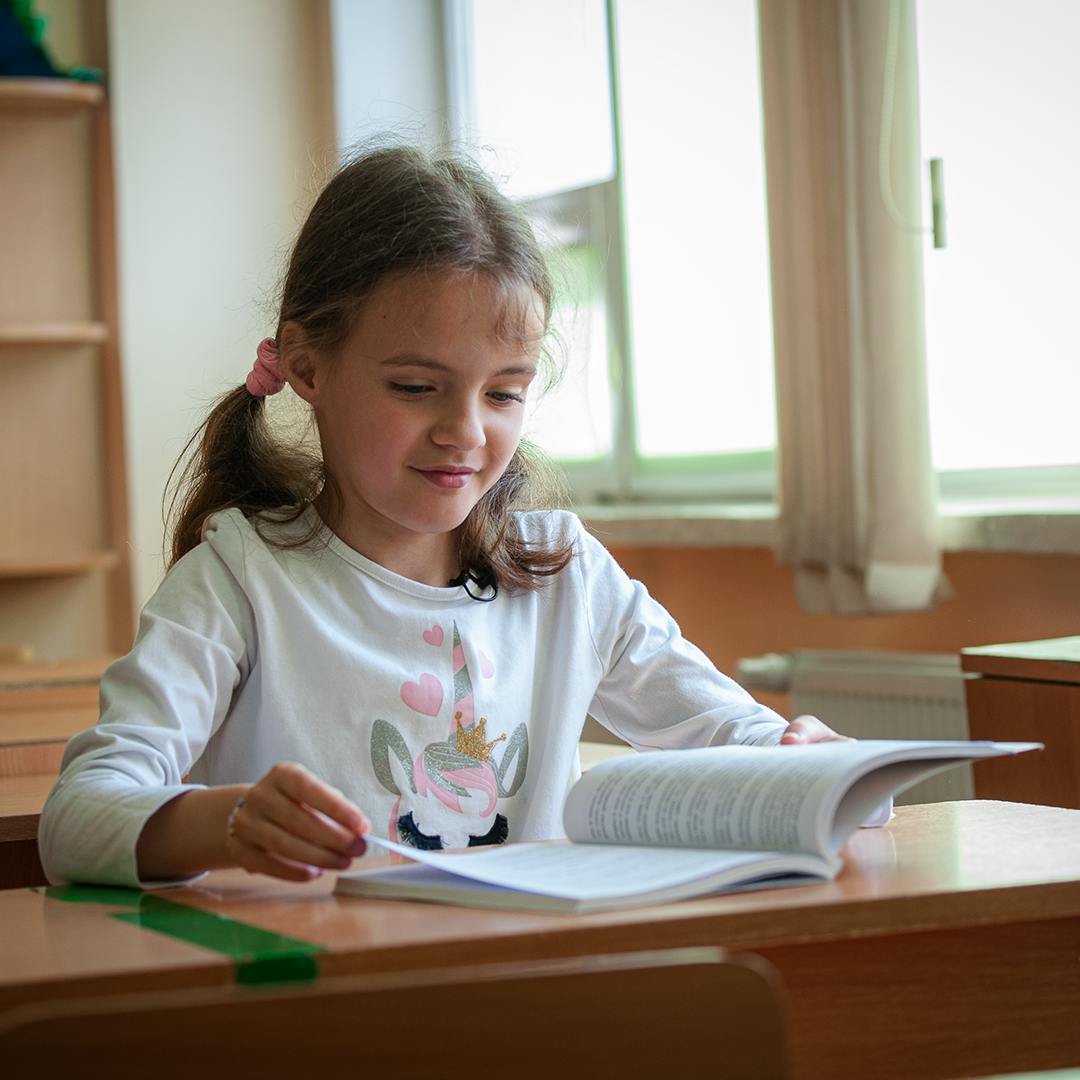
UN0664601
After the Pakistan Floodwaters receded
It's been almost a year and a half on from the devastating floods in Pakistan. Thankfully support from awesome donors has meant that UNICEF is able to stay on the ground to keep delivering support for kids and communities still reeling after this disaster.
With climate change making disasters of this scale more and more common, we can't stop our work now. We're committed to helping communities build back better, and be better prepared for other climate-induced emergencies and natural disasters.
This means being able to mitigate and adapt to our changing climate.
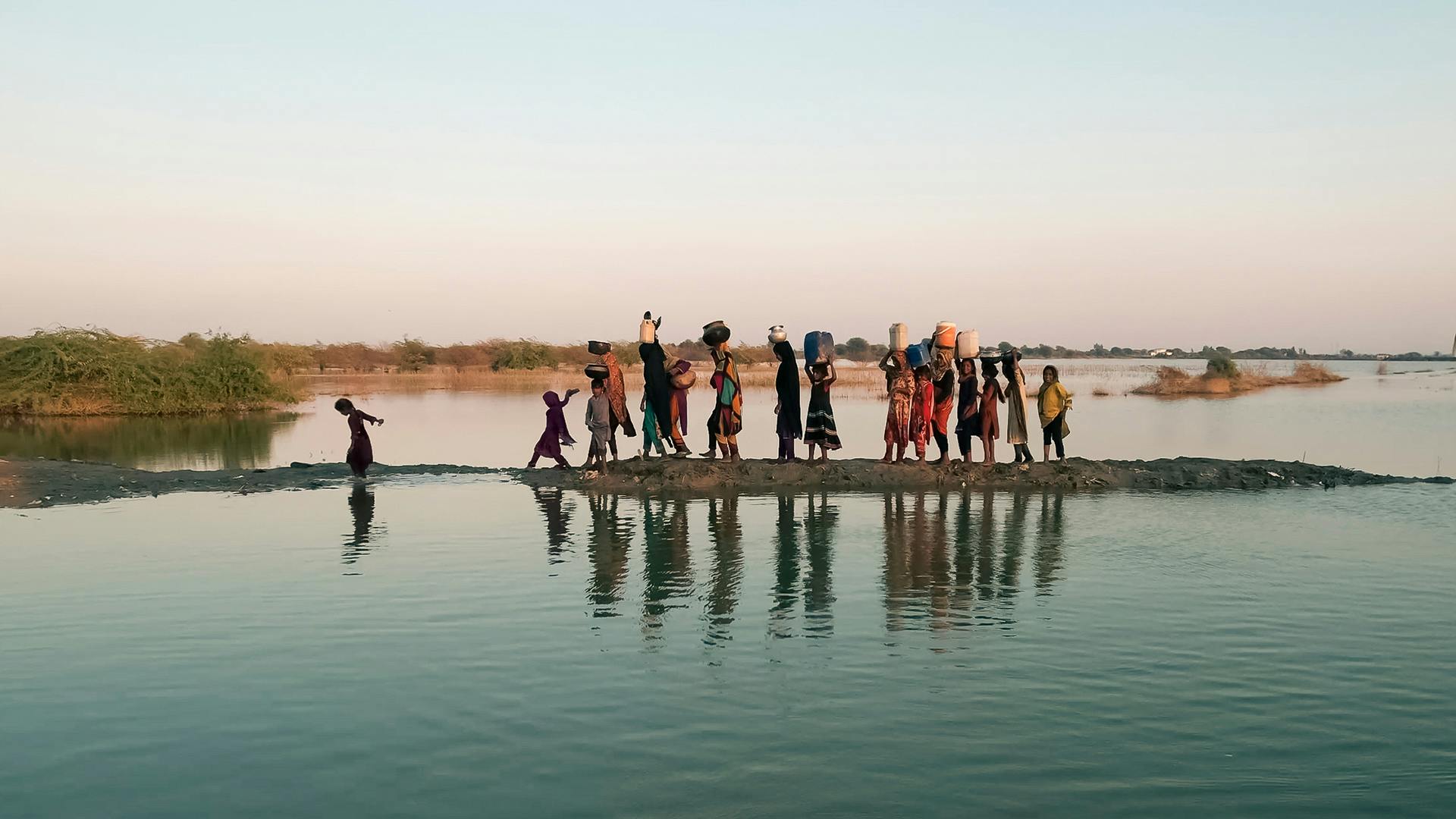
UNI431676
Worldwide we’re harnessing innovative technology and fresh thinking to source renewable water. By strengthening communities with access to multi-purpose solar power technology, we're helping them grow nutritious crops and provide sustainable energy for health care and education centres. And by designing climate resilient systems, this provides fast, effective support for when a disaster strikes.
Ultimately, we’re building climate sustainable communities that are thriving. But our hard mahi isn’t just focused overseas! At home we’re advocating and lobbying our governments to create systemic change for every child in Aotearoa.
Solar water in Yemen
Long term change is our jam!
There's no quick fix to solve the many problems facing people living on the frontlines of the climate crisis.
What's needed are solutions for long term impact.
This is why the Dhamar Solar Water Tower in Yemen is a game-changer and it was made possible by you, our donors, who share this vision of long-term sustainable solutions to complex problems.
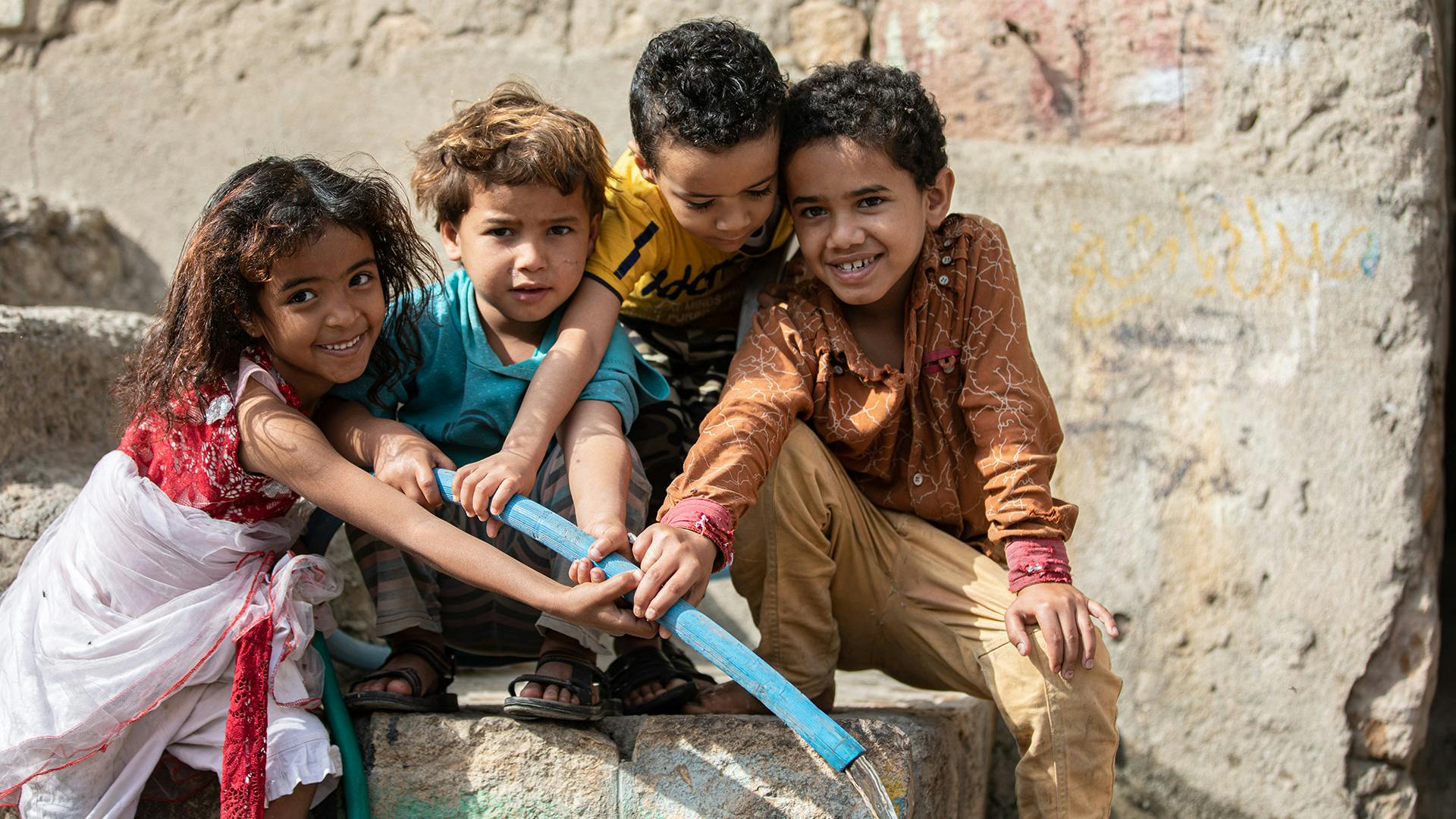
UN0806469

UN0418194
Long-term and impactful change
for children - on a scale like no other!
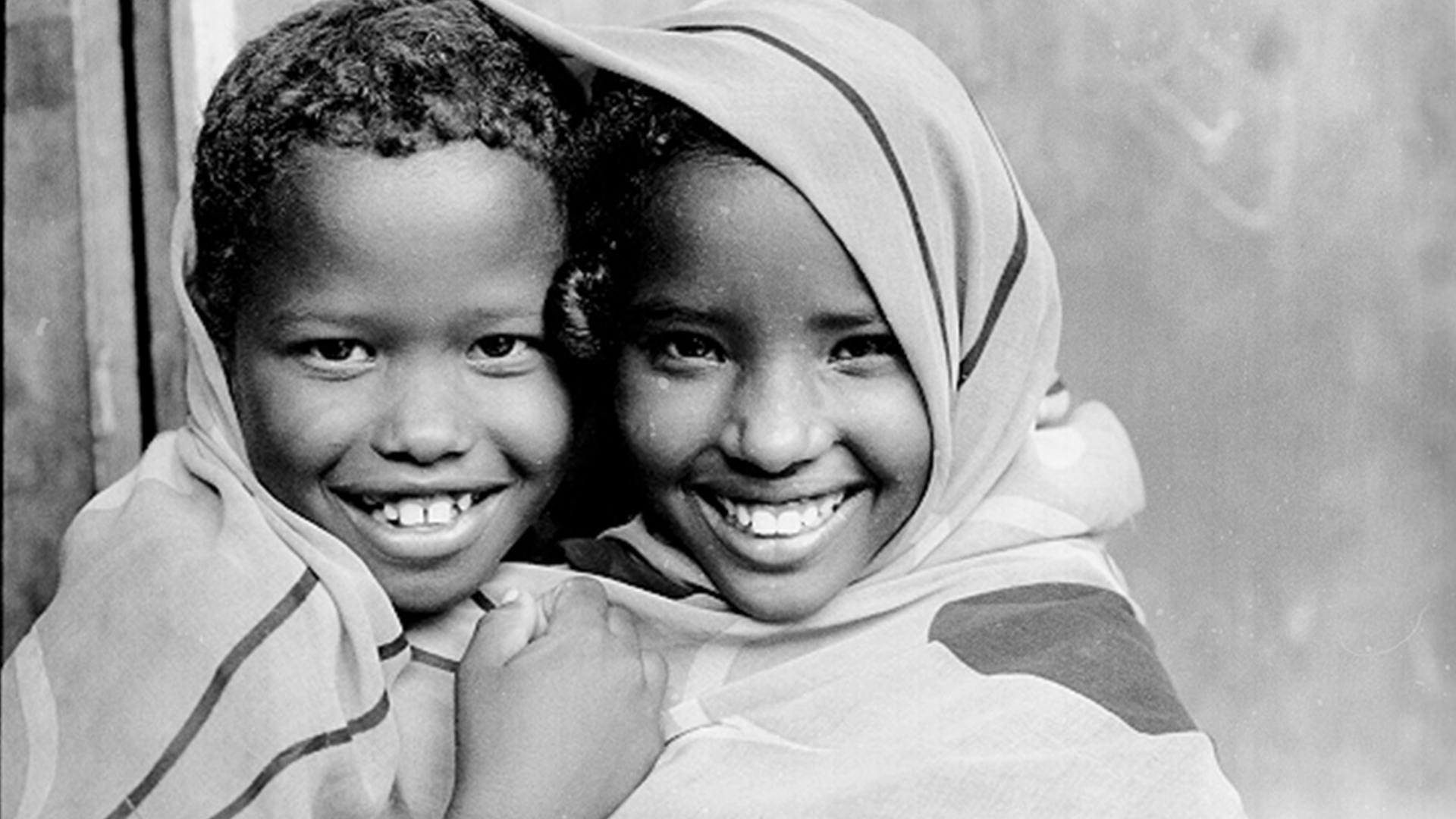
UNI25549
We get things done and we never give up - but it's regular donations that help us keep fighting the good fight. From the ground floor up, we're seeing through life-changing projects and programmes that tackle the root cause of problems affecting children's present and future.
For over 75 years we’ve worked to deliver lasting change for children as well as addressing their immediate needs. To move from emergency response to investing, implementing, maintaining, and scaling-up sustainable, innovative solutions requires a steady pool of donations.
Just as donors would carefully plan how much they're able to give monthly, we're strategically mapping out how every dollar can make long-term positive change for kids - for generations to come!
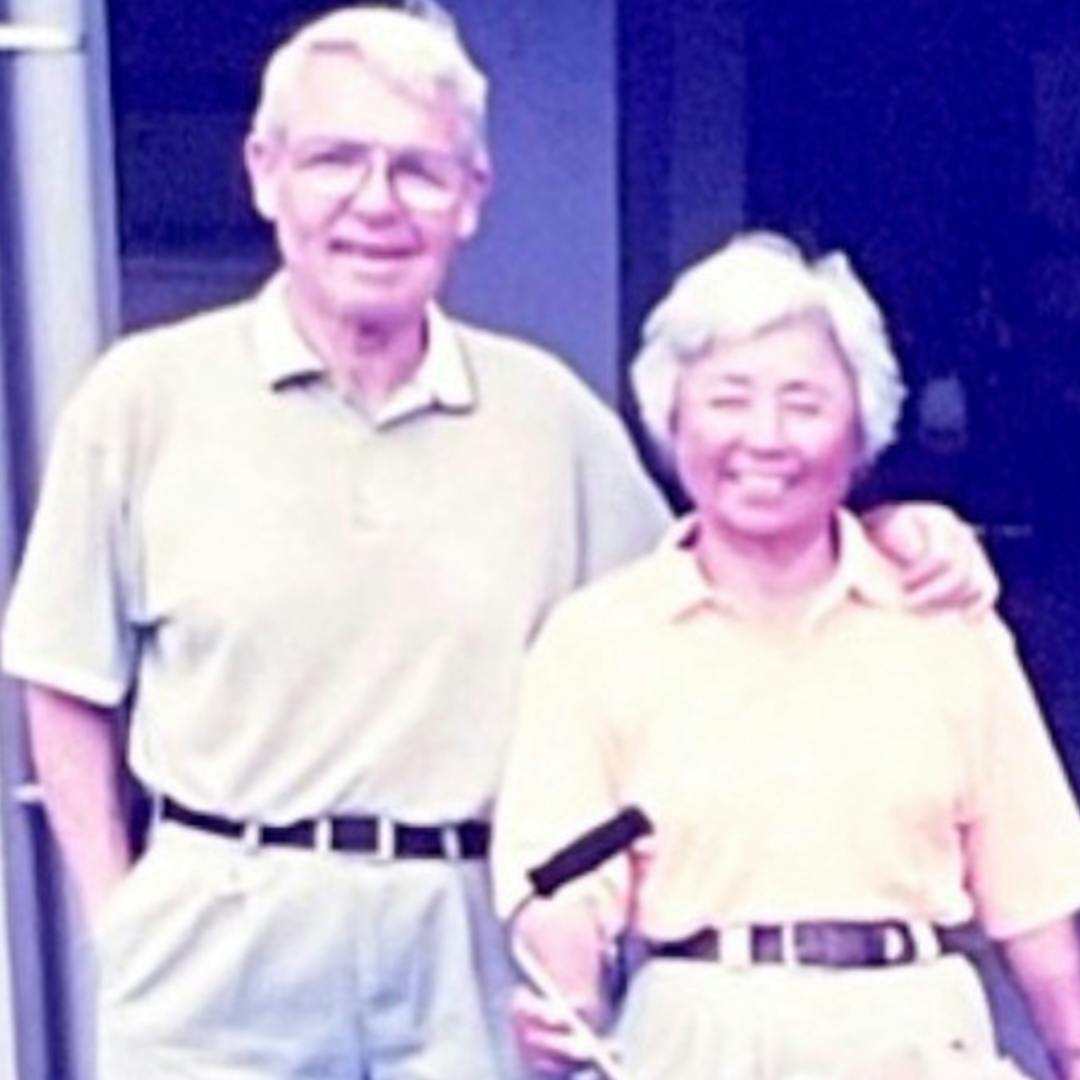
Through a bequest received this year from a generous community-minded couple who lived in Tauranga, UNICEF will now have an incredible impact on the lives of children in New Zealand and around the world.
“By making this gift to UNICEF Aotearoa through their will, the Deakin’s have left an amazing legacy to children that will last well beyond their lifetimes. Some of the world’s poorest children will now have access to education, healthcare, and clean water thanks to their incredible generosity.” – Michelle Sharp, CEO of UNICEF Aotearoa
Thanks for backing us in 2023
From the entire whānau at UNICEF Aotearoa, we'd love to wish you a safe and happy holiday period.
We couldn’t have done what we have without the support of Kiwis from all over the country. We hope to do even more in 2024 for every child, by always being there.
Before, during, and after emergencies.
Ngā mihi nui, noho ora mai.

